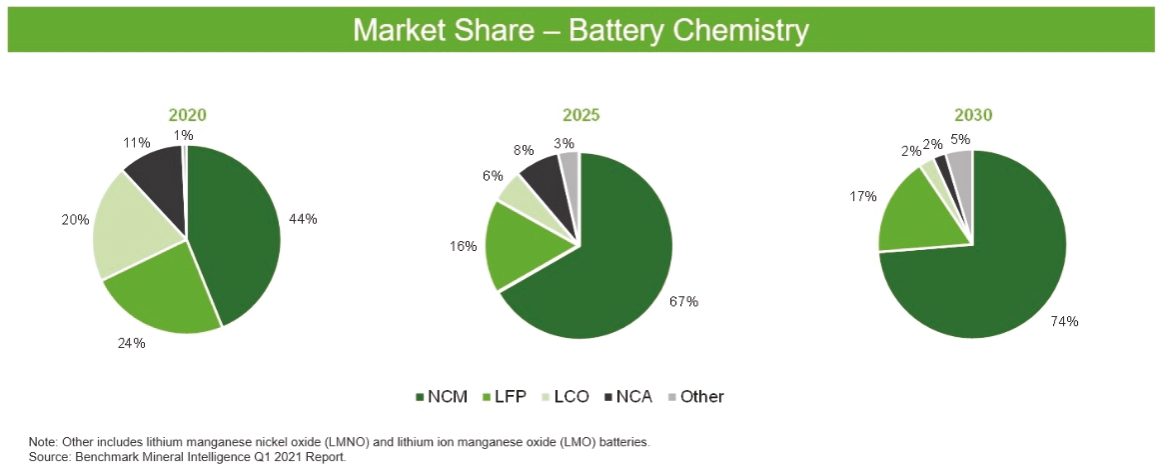Risks Related to Regulatory Matters
We are subject to substantial regulation and unfavorable changes to, or failure by us to comply with, these regulations could substantially harm our business and operating results.
Our materials, and the purchasers of our materials, are subject to regulation under international, federal, state and local laws, including export control laws. We expect to incur significant costs in complying with these regulations. Regulations related to the battery and EV industry and alternative energy are currently evolving and we face risks associated with changes to these regulations.
To the extent the laws change, our materials and equipment may not comply with applicable international, federal, state or local laws, which would have an adverse effect on our business. Compliance with changing regulations could be burdensome, time consuming, and expensive. To the extent compliance with new regulations is cost prohibitive, our business, prospects, financial condition and operating results would be adversely affected.
Internationally, there may be laws in jurisdictions we have not yet entered or laws we are unaware of in jurisdictions we have entered that may restrict our sales or other business practices. The laws in this area can be complex, difficult to interpret and may change over time. Continued regulatory limitations and other obstacles that may interfere with our ability to commercialize our materials and equipment could have a negative and material impact on our business, prospects, financial condition and results of operations.
We are subject to anti-corruption, anti-bribery, anti-money laundering, financial and economic sanctions and similar laws, and non-compliance with such laws can subject us to administrative, civil and criminal fines and penalties, collateral consequences, remedial measures and legal expenses, all of which could adversely affect our business, results of operations, financial condition and reputation.
We are subject to anti-corruption, anti-bribery, anti-money laundering, financial and economic sanctions and similar laws and regulations in various jurisdictions in which we conduct or in the future may conduct activities, including the U.S. Foreign Corrupt Practices Act (“FCPA”), the U.K. Bribery Act 2010, the Australian Criminal Code Act 1995 (“Criminal Code”), the Australian Anti-Money Laundering and Counter Terrorism Financing Act 2006, and other anti-corruption laws and regulations. The FCPA, the U.K. Bribery Act 2010, and the Criminal Code prohibit us and our officers, directors, employees and business partners acting on our behalf, including agents, from corruptly offering, promising, authorizing or providing anything of value, or providing benefit to a “foreign official”, or (under the Criminal Code) another person with the intention this will benefit a “foreign public official”, for the purposes of influencing official decisions or obtaining or retaining business or otherwise obtaining favorable treatment. The FCPA also requires companies to make and keep books, records and accounts that accurately reflect transactions and dispositions of assets and to maintain a system of adequate internal accounting controls. The U.K. Bribery Act also prohibits non-governmental “commercial” bribery and soliciting or accepting bribes. A violation of these laws or regulations could adversely affect our business, results of operations, financial condition and reputation. Our policies and procedures that are designed to comply with these regulations may not be sufficient and our directors, officers, employees, representatives, consultants, agents, and business partners could engage in improper conduct for which we may be held responsible.
Non-compliance with anti-corruption, anti-bribery, anti-money laundering or financial and economic sanctions laws could subject us to whistleblower complaints, adverse media coverage, investigations, and severe administrative, civil and criminal sanctions, collateral consequences, remedial measures and legal expenses, all of which could materially and adversely affect our business, results of operations, financial condition and reputation. In addition, changes in economic sanctions laws in the future could adversely impact our business. See “—Any global systemic political, economic and financial crisis (as well as the indirect effects flowing therefrom) could negatively affect our business, results of operations, and financial condition.” for more information.
We are subject to environmental, health and safety requirements which could adversely affect our business, results of operation and reputation.
Our facilities and operations are subject to numerous environmental, health and safety (“EHS”) laws and regulations which require significant capital investment on an ongoing basis. These laws and regulations regulate, among other things, the discharge of materials into the environment, air emissions, the handling and disposal of wastes, remediation of contaminated sites and other matters relating to worker and consumer health, and safety and to the protection of the environment. Non-compliance with applicable EHS laws could give rise to liability, including the potential for civil or criminal fines or penalties, unforeseen capital expenditures or other legal




















